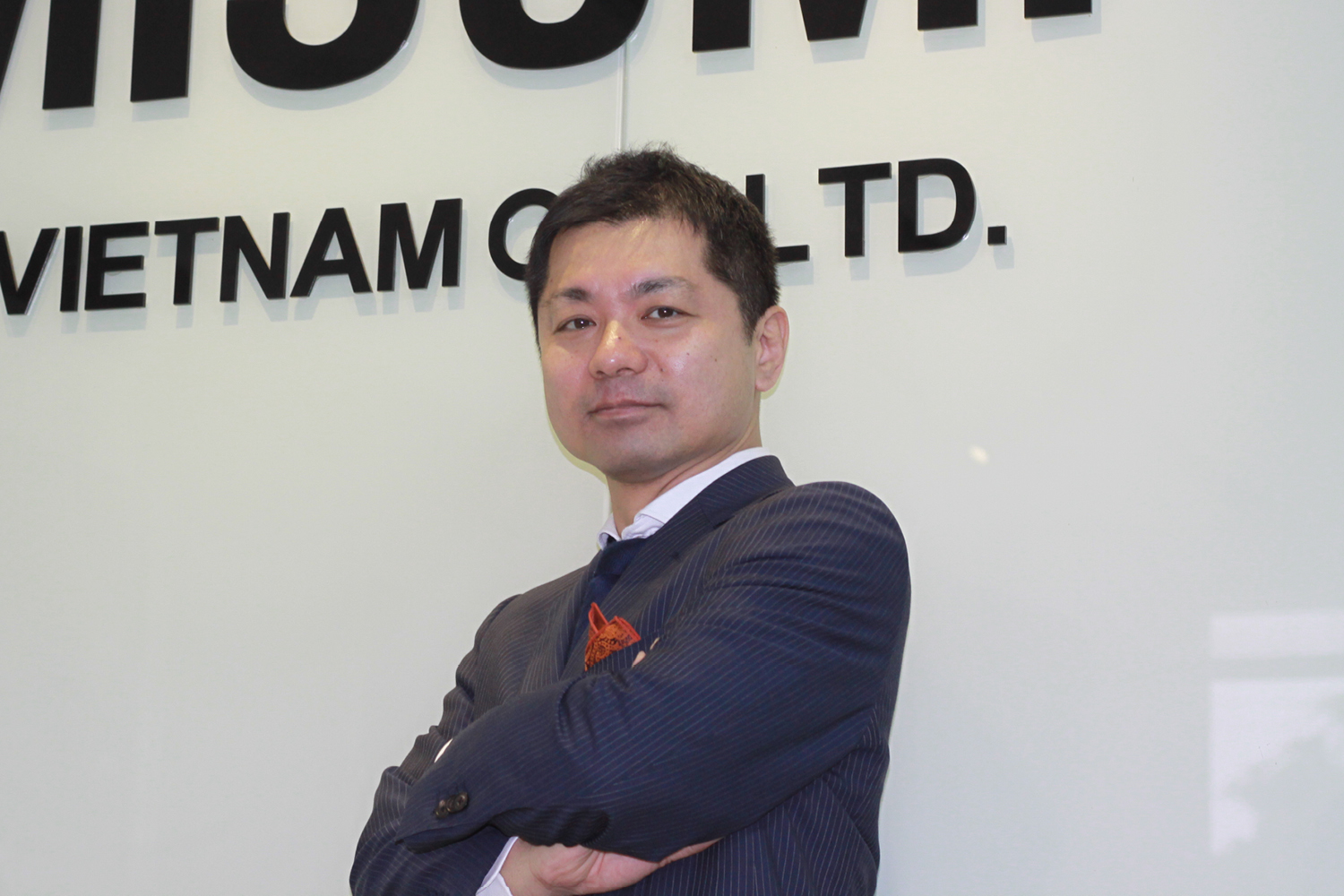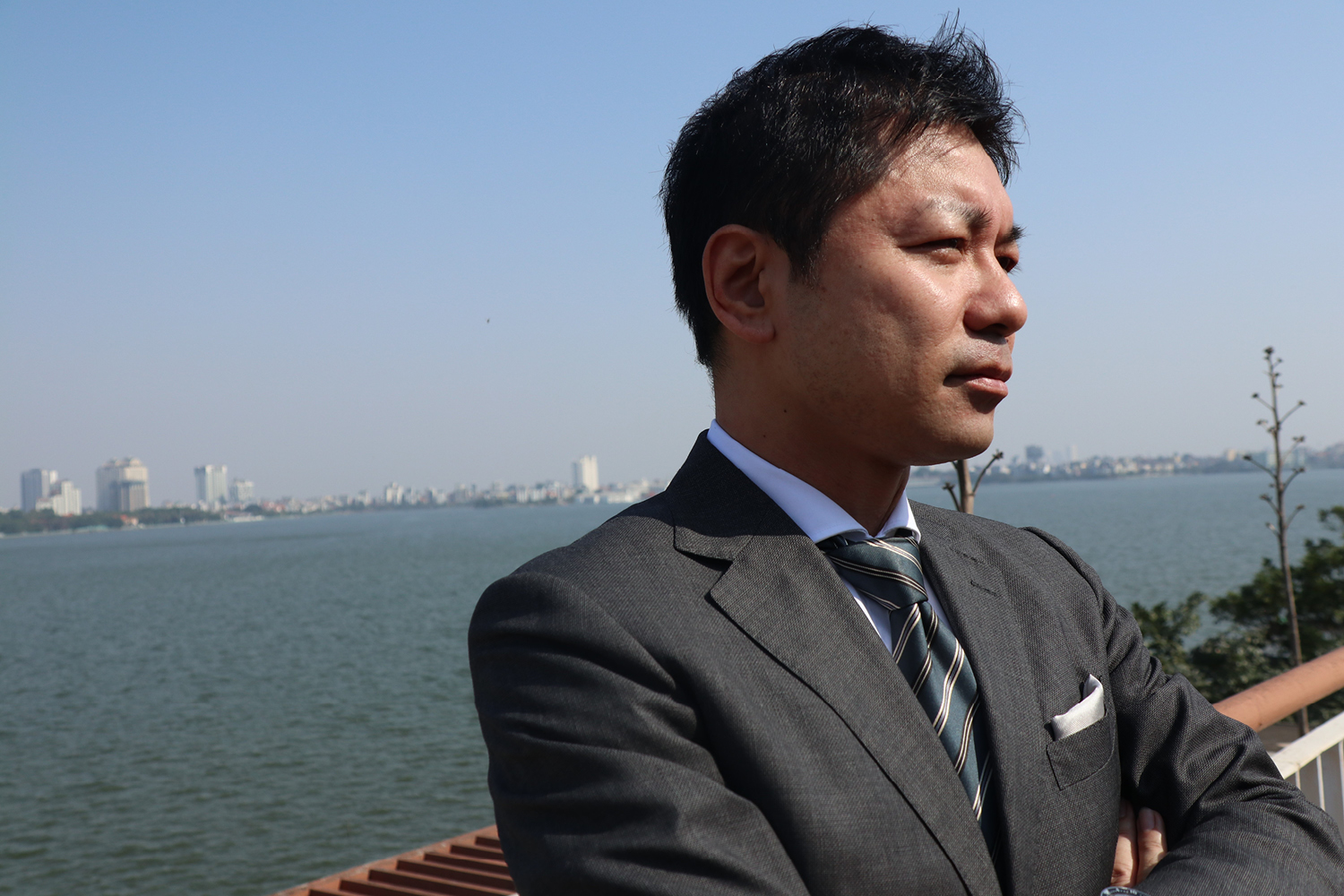One-stop service provider: Yasuo Shimokura
Misumi Vietnam General Director Yasuo Shimokura shares how the business is aiming to transform from a conventional distribution company to a one-stop service provider for manufacturers.
Misumi Vietnam – a Japanese distributor of mechanical standard components – is working to capture a large piece of Vietnam’s manufacturing and factory automation sector.

At the helm of the Hanoi-based business is General Director Yasuo Shimokura, who has been part of the Misumi family for nearly 10 years.
"Vietnam has sustained rapid yet stable economic growth for the past 20 years, and this trend will continue – it is the only one country in the major countries in the Asia–Pacific region to have realised positive GDP growth after COVID-19," Yasuo explains.
"Moreover, along with GDP growth, foreign direct investment is lively and steadily increasing," he says. "In 2019, it reached US$20 billion with major industries such as mobile phones, electrical machinery and electronics. Some negative impact of COVID-19 is being offset by tremendous investment from China, Taiwan and other Asian countries as a consequence of China-US trade conflict."
As a risk factor, labour costs in Vietnam have been increasing by 5–10 per cent every year, which has the potential to have a negative impact on the management of manufacturing companies. "It is, however, actually a positive trend for Misumi, which has various factory automation products and solutions," Yasuo notes. "I am convinced that the manufacturing sector in Vietnam is close to the dawn of factory automation and there is huge opportunity for Misumi in the future."
Often described as "the Amazon for the manufacturing sector", Misumi has established itself as a leading manufacturer and distributor of standard components for factory automation; bearing the Japanese standard for high-quality products and services (Q), competitive cost (C), and short and accurate delivery lead time (T). In addition to these ‘QCT’ value propositions, Misumi is also adding product variation (V) and enhancing customer services (S).
Additionally, by implementing two critical business arms – a manufacturing and a distributing business – Misumi can differentiate itself from its competitors. "Our manufacturing arm is one of the oldest and largest factories in Vietnam," Yasuo shares. "With this background, Misumi can understand the specific technical issues and demands that are required in the manufacturing process. Thus, we are constantly creating ‘synergies’ between the manufacturing and distribution businesses."

The other element of success is the company’s vast product variation and stock quantity. Misumi supplies more than eight million premium products with 3,000 brands and 170,000 stock items in Vietnam. "The level of product variation and quantity is by far the number one in the Vietnamese market," Yasuo confirms.
"To further respond to the various customer needs, we are increasing our product lines, including maintenance, repair and operation products, and consumable goods, as well as lower-priced ‘economy’ products. We are expanding our partnership with Chinese, Taiwanese and Vietnamese suppliers to provide these economy products."
"I came to Vietnam not only to grow business and make a profit but also to grow people and build a culture that could compete and win in a global business environment."
Yasuo further notes that, although ecommerce is not yet standard in business-to-business
manufacturing, there is a growing trend of ecommerce in the consumer business. "There’s no doubt the same trend will soon occur in business-to-business manufacturing," he says.
With the importance of information technology and the acceleration of digitisation, much of the company’s focus has been on digital expansion. "No-one can ignore this global trend even in the most traditional industries," Yasuo acknowledges. "Hi-tech giants in the US and China are ahead in data collection and analysing. It seems almost impossible to catch up with them."
But losing and falling behind is not an option. "My vision is for Misumi to become a leader in online merges with offline in the manufacturing field; creating a unique database merging online data such as web transaction and behaviour, and offline data in the daily manufacturing process."
By leveraging this unique database, Misumi aims to transform the business from a conventional manufacturing and distribution company to a one-stop service provider to give customised solutions to each customer.
"Integrity is something I cannot and should not compromise for any reason."
Yasuo also highlights that Misumi has been investing heavily in its website and mobile solutions and has made operational improvements specifically accustomed to customers in the Vietnamese market.
Customers can currently search and compare products, check the price and delivery time, get a quotation and complete an order. "I believe no-one can catch up with Misumi Vietnam in the field of business-to-business manufacturing ecommerce."
With more than 23 years of experience in strategy building, business and people development across several industries, Yasuo is confidently and proficiently leading the company towards the global stage. "We are not a Japanese company nor a Vietnamese company," Yasuo confirms. "We aim to be a global company, and we will be. People that work here are not only the smartest and brightest but also the most global minded with the highest business ethics in the country."
The General Director concludes by sharing his top advice for business success in emerging markets: "When in Rome, do as the Romans do," he says. "You have to flexibly absorb indigenous cultures and modestly learn unique business customs to be successful in businesses in other countries."
"At the same time, however, you should also be clear about what’s important to you. For me, it is integrity. When doing business in emerging markets, you may face some difficult situations in getting approval from relevant authorities and winning over deals from your competitors – government authorities or customers may sometimes require you to bribe them." Yasuo confesses that he’s spent many days deciding whether he should accept unofficial money to do business here more smoothly and efficiently.
"During those times, I always ask myself, ‘Why did you come here?’ and ‘What is my mission working here?’ I came to Vietnam not only to grow business and make a profit but also to grow people and build a culture that could compete and win in a global business environment," he shares. "Integrity is something I cannot and should not compromise for any reason."